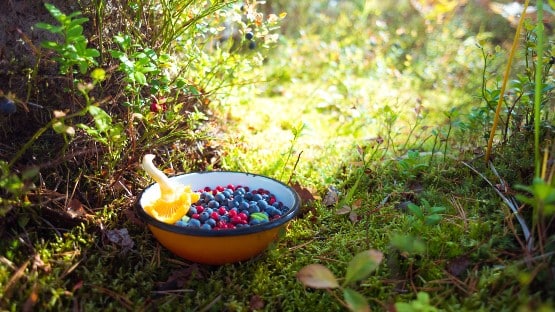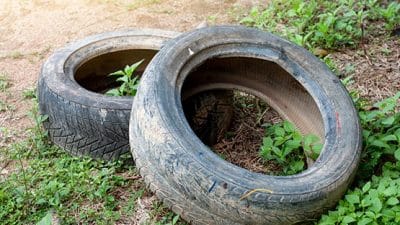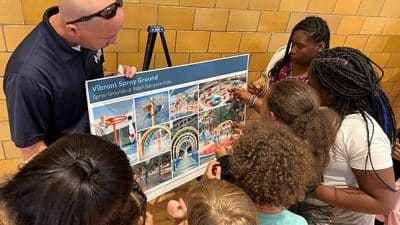
Foraging for wild edible and medicinal plants has become more popular in recent years among people who want to learn about self-reliance and wilderness survival, and to expand their food sources.
Tim MacWelch is one such person.
Growing up, foraging for berries, nuts, roots and wild greens “was part of the stuff we did,” MacWelch said.
“We would go collect wild blackberries, raspberries and shell black walnuts — you know, take advantage of the natural resources,” MacWelch said.
MacWelch transformed that knowledge into a career and founded Advanced Survival Training™, for which he leads educational tours about edible and medicinal plants at a nearby state park.
“Spring and fall are really the top two seasons for most foragers,” MacWelch said. “Spring is the salad season, full of tender leafy greens like curly dock, which can be prepared like spinach. Summer is ideal for berries, and fall is a ´calorie cash cow‵ with seeds and nuts like acorns and black walnuts.”
While foraging, MacWelch teaches others to examine plants’ distinct characteristics to determine which are edible and safe–things like the shape of leaves and leaf patterns, whether the stems are smooth or fuzzy, with thorns or without.
And if in doubt about a plant, don’t eat it, he said.
In Scott County, Aaron Mazuelos forages on her family’s 200-acre farm for mushrooms, wild mint, wood sorrel, watercress and more.
“Making foods from the things you find is pretty fun,” Mazuelos said.
Mazuelos makes jellies from wineberries, pesto from watercress and tea from hoary mountain mint. The mint is “good for colds and opening up your chest,” she added.
Like MacWelch, Mazuelos grew up recognizing wild edible plants and views foraging as connecting with her ancestors who lived on the same land. She gained additional knowledge by foraging with mentors who taught her which mushrooms to pick—like chicken of the woods—and which to avoid.
“Do your research,” Mazuelos said. “Find yourself a good mentor, a good website or book, and double-check everything. You want to be positive about what you’re collecting.”
There also are ground rules to follow.
“When you’re foraging, never take all of what’s there. Always leave some” for others, and to ensure there’s more for next year, Mazuelos said.
Also respect property boundaries, and don’t forage on others’ property without permission, Mazuelos said.
If foraging in a park or forest, familiarize yourself with the rules for that specific park by checking the park’s website and contacting the local park ranger to find out what can be foraged, how much can be collected and what’s off limits.










